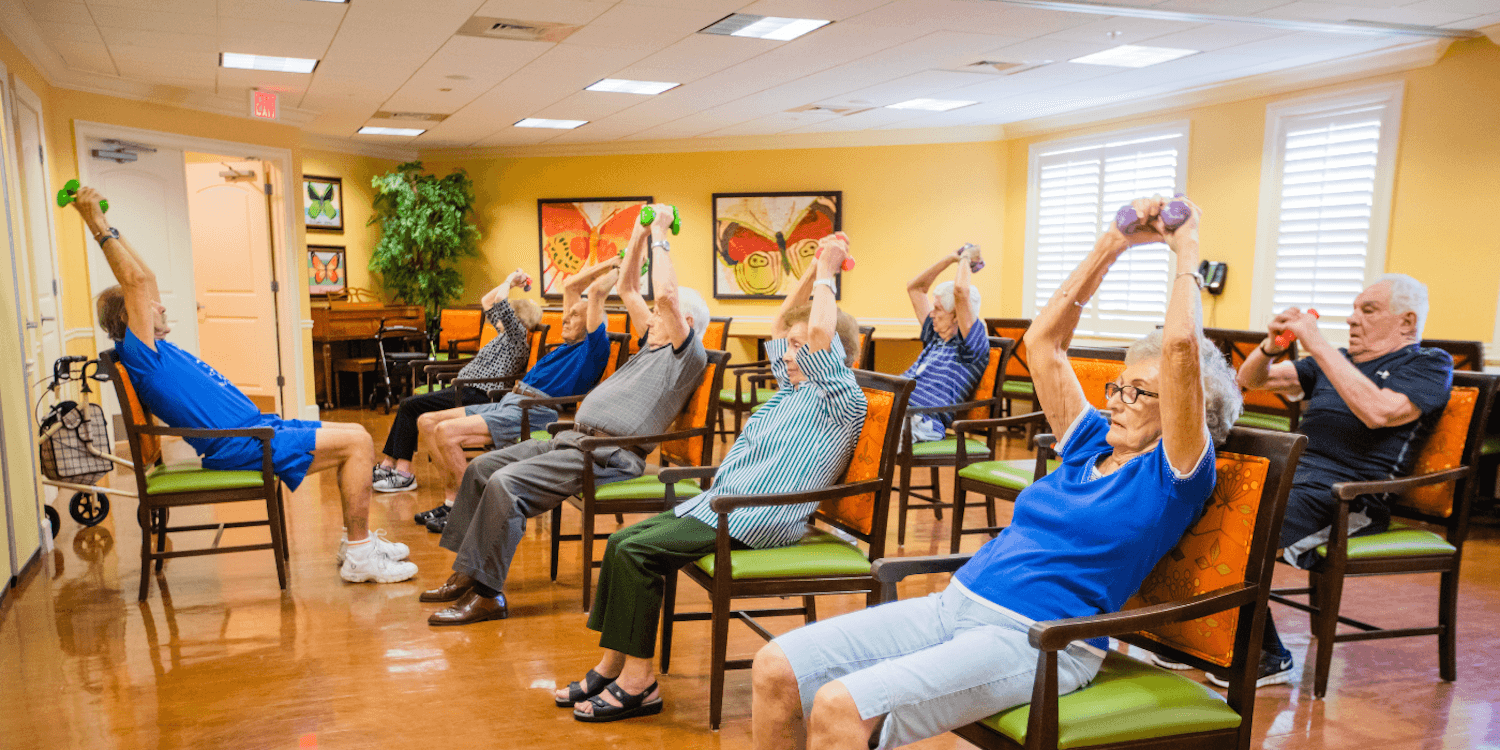Enhancing Comfort and Security Via Alzheimers Care Charlotte Solutions
Enhancing Comfort and Security Via Alzheimers Care Charlotte Solutions
Blog Article
Creating a Safe and Helpful Atmosphere for Alzheimer's Treatment
The development of a supportive and safe atmosphere for people with Alzheimer's is paramount in improving their lifestyle. This includes not only physical adjustments within the home, such as minimizing hazards and incorporating familiar components, but also the application of organized regimens and significant tasks that satisfy their cognitive requirements. In addition, recognizing the psychological and emotional dimensions of care can significantly impact their complacency and connection. Exploring these complex approaches can reveal crucial understandings into efficient caregiving strategies that might change the day-to-day experiences of both caretakers and clients.
Comprehending Alzheimer's Requirements
Often, people with Alzheimer's disease exhibit a series of needs that require customized methods to care. As the problem advances, cognitive decline manifests in numerous means, affecting memory, thinking, and also the capability to perform daily tasks. Caretakers have to identify these progressing requirements to offer appropriate support and make sure a better of life for those affected.
One crucial aspect of comprehending Alzheimer's requirements is acknowledging the importance of regular and experience. Individuals frequently find convenience in well established patterns, which can decrease anxiety and complication. Caregivers should make every effort to create organized everyday schedules that include meaningful activities aligned with the person's capabilities and interests.
In addition, effective interaction is vital. Individuals with Alzheimer's might struggle to share themselves or comprehend complex language. Caretakers should use easy, clear language, use non-verbal signs, and practice active paying attention to foster understanding and link.
Lastly, psychological and social needs can not be overlooked. Supplying opportunities for social interaction and keeping partnerships can substantially boost emotional wellness. Caretakers need to motivate involvement in community activities or family members gatherings, promoting a sense of belonging and objective. Understanding these diverse requirements is crucial for creating a helpful treatment setting.
Designing a Safe Home
Creating a safe home for individuals with Alzheimer's disease is vital to promoting and lessening threats freedom. The layout of the living room must prioritize security while enabling for personal comfort. Initially, eliminate prospective threats such as loosened carpets, sharp objects, and clutter, which can bring about drops or mishaps. Make sure that pathways are clear and well-lit, as correct illumination reduces disorientation and enhances mobility.
Integrating adaptive functions is also vital. Install grab bars in shower rooms and near stairways, and consider making use of non-slip mats in damp locations. Furthermore, making use of contrasting shades for walls and floorings can help in identifying spaces, helping to mitigate confusion.
Knowledge is essential for people with Alzheimer's. Personalizing the setting with acquainted objects and photos can enhance a sense of belonging and protection - Alzheimers Care Charlotte. It is likewise valuable to have an assigned location for day-to-day activities, such as reading or crafting, which can offer framework to their day
Last but not least, implementing a protected outside space enables secure expedition while linking with nature. By thoughtfully creating the home environment, caregivers can considerably improve the top quality of life for individuals dealing with Alzheimer's illness.
Enhancing Interaction Skills

Non-verbal interaction, consisting of facial expressions, gestures, and touch, plays a critical duty in communicating empathy and understanding. Keeping eye get in touch with and a calm demeanor can boost the comfort level of the person, promoting a feeling of security.
Moreover, it is very important to exercise active listening. This entails being fully existing, showing perseverance, and enabling the person to reveal themselves without interruption. Rep may be essential; caregivers should be prepared to take another look at questions or subjects, as individuals with Alzheimer's might deal with memory recall.
In addition, utilizing aesthetic aids or signs, such as photographs or familiar objects, can promote recognition and interaction. Ultimately, improving interaction skills is concerning developing trust and producing a setting where individuals really feel heard, valued, and comprehended, thereby enhancing their lifestyle.
Urging Social Interaction
Promoting Go Here purposeful social communications can considerably boost the well-being of individuals with Alzheimer's condition. Involving with others not just aids combat feelings of seclusion yet likewise promotes cognitive feature and emotional health and wellness. Structured social tasks, such as team video games, arts and crafts, or songs treatment, develop opportunities for locals to link with peers and caretakers, which can bring about boosted mood and decreased stress and anxiety.
Producing a welcoming setting that urges socializing is important. This can be accomplished by setting up common areas that assist in communication, such as comfy seating areas or activity rooms. Additionally, incorporating familiar and culturally relevant tasks can trigger memories and urge engagement, enabling individuals with Alzheimer's to feel more connected to their previous experiences.
In addition, caretakers must be trained to acknowledge and promote social engagement amongst homeowners. Basic motions, such as starting conversation or helping with small seminar, can assist site link individuals feel valued and consisted of. Regularly set up social occasions need to correspond yet adaptable, suiting varying levels of capacity and passion. By prioritizing social interaction, we can dramatically improve the lives of those dealing with Alzheimer's, fostering a feeling of neighborhood and belonging.
Supporting Caretaker Wellness

To sustain caretakers, companies should provide normal training and instructional sources to enhance their understanding of Alzheimer's disease and caregiving methods. Supplying accessibility to reprieve treatment solutions allows caregivers to take required breaks, decreasing anxiety and exhaustion - Alzheimers Care Charlotte. In addition, fostering a community through support groups can help with emotional sharing and the exchange of functional recommendations amongst caretakers, producing a network of shared support
Mental health and wellness resources, such as counseling solutions, can additionally be crucial in resolving the psychological toll caregiving can take. By focusing on caretaker health, we develop an even more lasting caregiving atmosphere that not only benefits the caregivers themselves but also boosts the total top quality of care received by individuals with Alzheimer's. Inevitably, sustaining caregivers is a necessary element in fostering a reliable and thoughtful care setup.
Verdict
To conclude, the development of a encouraging and risk-free environment for people with Alzheimer's is necessary to enhancing their lifestyle. By focusing on safety and security through thoughtful design, promoting psychological wellness with familiar components, and promoting engagement via structured see post routines, caretakers can dramatically affect the overall experience of those impacted by this condition. In addition, supporting caregiver wellness is essential, as it inevitably contributes to an extra caring and effective treatment environment.
Rep may be essential; caregivers need to be prepared to revisit questions or subjects, as people with Alzheimer's may have a hard time with memory recall.

Report this page